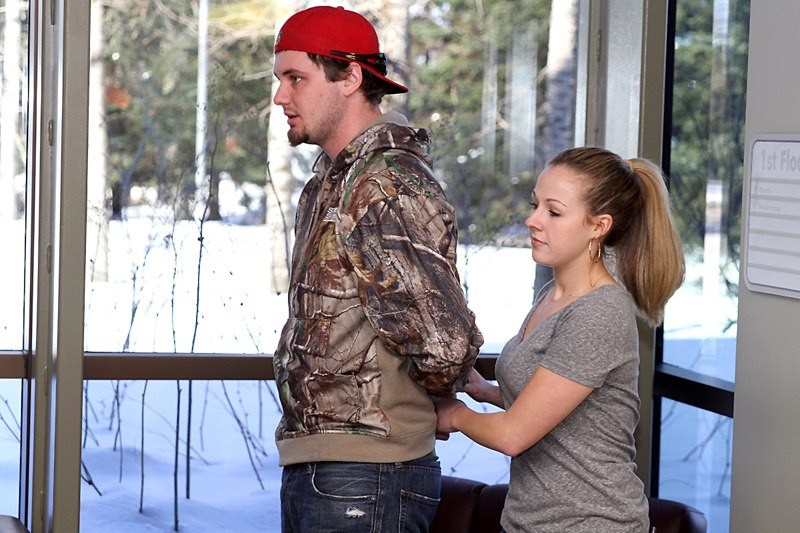College courses can be insular at times.
Nursing students often have no idea what police students do. Firefighters might not understand the expectations of medical lab assistants.
A little knowledge can go a long way in the working world, which is why on Wednesday Confederation College introduced students in their schools of health and community services to each other through an inter-professional education day.
Gabriel Picard, a social service worker student, said it was a great opportunity to get involved with other programs that coincide with his own in the community.
“Lots of our classes and the things we learn cross each other. So I think it was in interesting opportunity to talk to other students in other programs to see what we’re learning that’s similar and what we’re learning that’s not similar,” Picard said.
“We’ll all have jobs that interact with each other when we graduate.”
Medical lab assistant student Vanessa D’Agostino said understanding what other professions do and how their roles interact with her own is valuable.
“We get to learn more about all of the other people who work in the medical field. So we gain respect for them and we get to know what they do, along with more about what we need to do to improve ourselves,” D’Agostino said.
That in turn will make the transition to the working world less stressful.
“It makes it a lot easier because you need to work with these people and you need to know how to interact with these people,” she said.
According to Bryanna Scott, the academic manager of the school of health and community services, students don’t automatically have an understanding of what their colleagues down the hall are doing.
Bringing everyone together creates networks and familiarity down the road.
“As well, they’ll get a taste and feel for what other professions are doing,” Scott said.
“Part of it is knowing a familiar face in the community. You may be a paramedic and you’re on a call at something where also firefighters are.
“The idea is that if we can give students, while they’re in training at the college, the opportunity to learn about familiar faces as well, it will help them develop networks and community connections, knowing during a crisis ... that the professions come together to work together as a team to help the families and the people involved in the incidents.”
More than 400 students took part in the exercise, which were taught either by program co-ordinators or students themselves.
